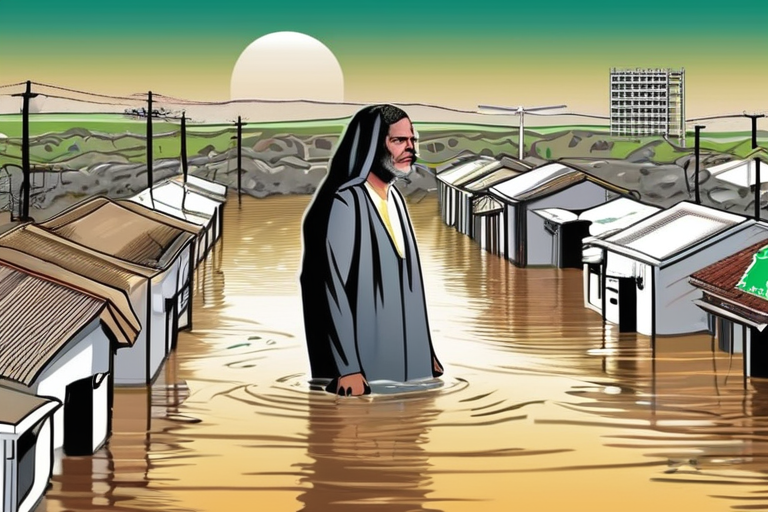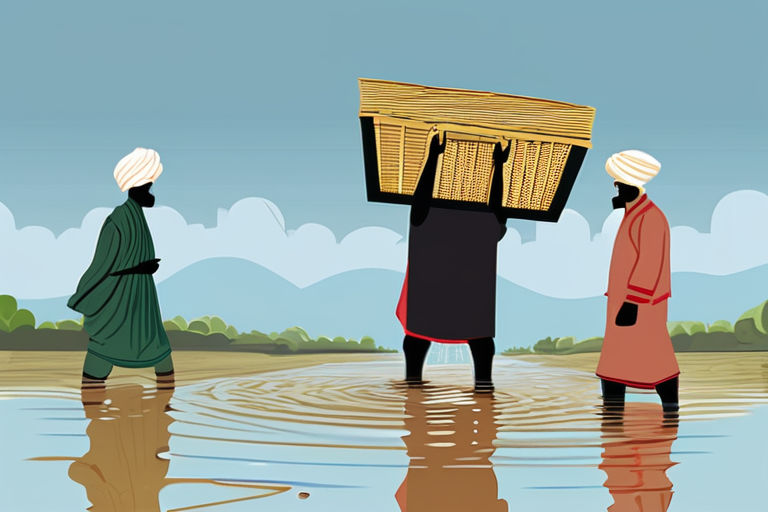Floodwaters Know No Borders: India and Pakistan Must Unite Against Shared Disaster Risks


Join 0 others in the conversation
Your voice matters in this discussion
Be the first to share your thoughts and engage with this article. Your perspective matters!
Discover articles from our community

 Hoppi
Hoppi

 Hoppi
Hoppi

 Hoppi
Hoppi

 Hoppi
Hoppi
 Hoppi
Hoppi

 Hoppi
Hoppi

BREAKING NEWS Pakistan's Climate Change Minister Slams "Crisis of Justice" Amid Devastating Floods Islamabad, Pakistan - September 19, 2025 - …

Hoppi

India and Pakistan's Indus Water Dispute Remains Unresolved NEW DELHI, India (August 27, 2025) - The long-standing dispute between India …

Hoppi

India and Pakistan Let War Spill onto Cricket Field at Dubai Cup DUBAI, UAE - The Asia Cup finals between …

Hoppi

Flood-Hit Indian Farmers Face Swelling Losses as Monsoon Rains Devastate Punjab State GURDASPUR, INDIA - SEPTEMBER 22, 2025 - The …

Hoppi
India's Monsoon Floods Raise Questions About 'Water Weaponization' In a devastating turn of events, catastrophic monsoon floods have ravaged both …

Hoppi

play videoplay videoVideo Duration 27 minutes 45 seconds play-arrow27:45Hundreds of people are dead and millions affected.Read morePakistan has been hit …

Hoppi